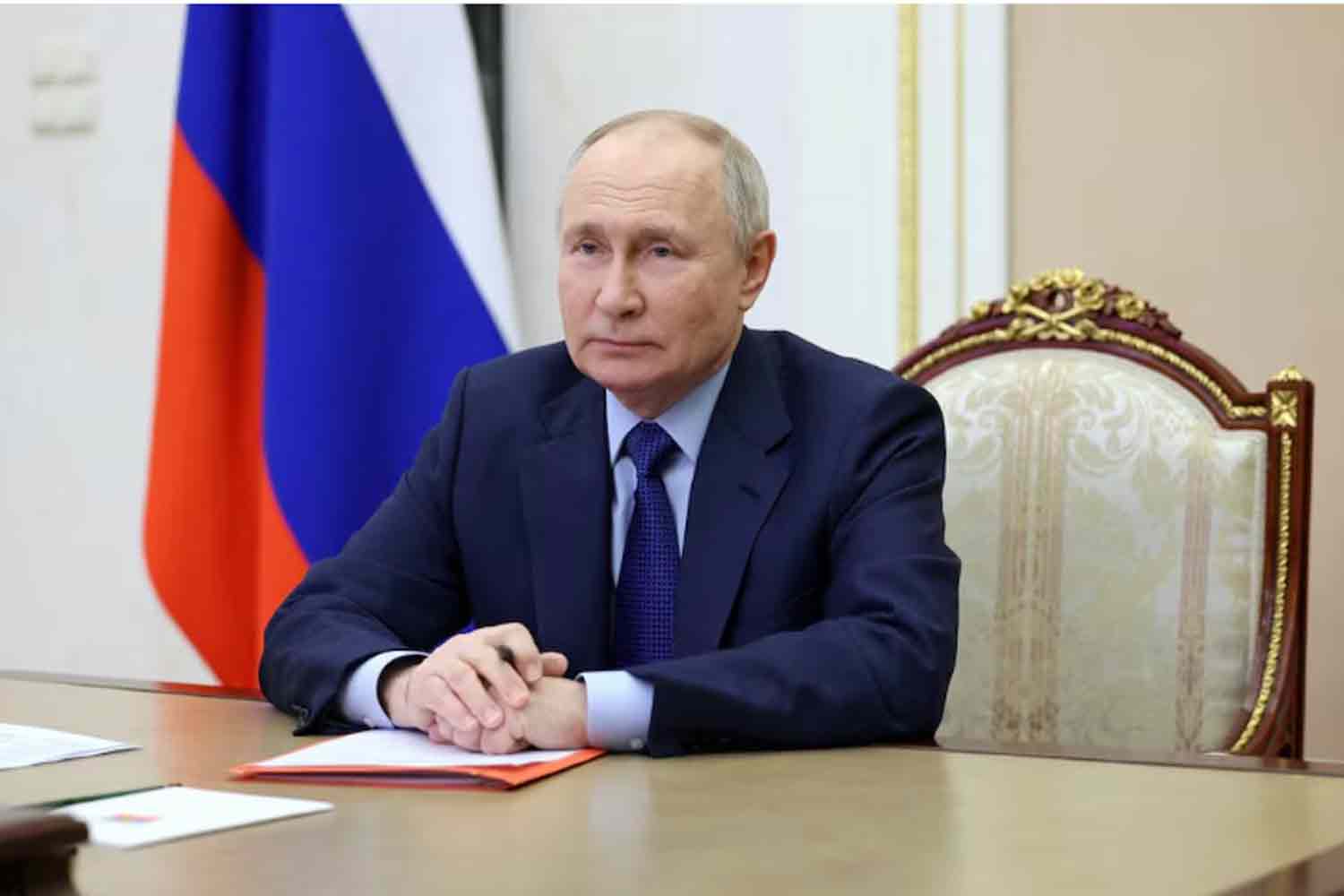President Vladimir Putin‘s intelligence chief cautioned the West on Wednesday about the potential for catastrophic outcomes if the United States and its European partners escalate military tensions with Russia regarding Ukraine.
Moscow has condemned Washington’s decision to allow Ukraine to utilize U.S. missiles for strikes within Russian territory, and on Tuesday, Putin signaled a lower threshold for nuclear engagement in response to a wider array of conventional assaults.
The escalating tensions have led to a flight to safety in various financial markets, raising fears of a global confrontation reminiscent of the 1962 Cuban Missile Crisis, a period when Cold War superpowers were on the brink of nuclear conflict.
Sergei Naryshkin, the director of Russia’s Foreign Intelligence Service (SVR), stated that Russia would retaliate against any NATO countries that assist Ukraine in launching long-range attacks into Russian territory using Western weaponry.
“Any efforts by certain NATO allies to facilitate potential long-range strikes with Western arms deep within Russian borders will face consequences,” Naryshkin remarked in an interview with National Defence magazine.
Russia claimed that Ukraine launched U.S. ATACMS missiles into Russian territory early Tuesday and implied that the United States must have provided assistance through satellite intelligence, targeting, and military personnel.
Washington did not immediately respond to these claims but noted on Tuesday that the revision of Russia’s nuclear policy was expected and dismissed “more of the same reckless rhetoric from Russia.”
The U.S. maintains that Russia, which deployed tens of thousands of troops into Ukraine in February 2022, is responsible for the ongoing conflict. Ukrainian President Volodymyr Zelenskiy remarked on Tuesday that the update reflected the Russian leader’s disinterest in pursuing peace.
The U.S. embassy in Kyiv was closed on Wednesday due to “specific information regarding a potential significant air attack,” prompting officials to advise American citizens in Ukraine to be prepared to seek shelter quickly. The Kremlin declined to comment on the situation.
Naryshkin, who leads the primary successor organization to the KGB’s First Main Directorate, indicated that Western elites are beginning to recognize “the seriousness of Russia’s intentions.”
He emphasized that the West must grasp “the necessity for greater restraint in their actions to avoid direct military conflict with our country, which could result in catastrophic consequences for them.”
LANDMINES
Russia currently controls over 110,500 square kilometers (42,660 square miles) of Ukrainian territory, while Ukraine holds approximately 650 square kilometers of Russia’s Kursk region.
As Russian forces continue to advance in Ukraine, Moscow asserts that it will fulfill all its objectives, including the demilitarization of Ukraine.
President Biden has authorized strikes deep into Russian territory using American weaponry and has also approved the supply of anti-personnel land mines, according to a U.S. official who spoke to Reuters.
Kremlin spokesman Dmitry Peskov remarked, “We observe the trend set by the outgoing U.S. administration: they are fully committed to prolonging the war in Ukraine and are doing everything possible to achieve this in the time remaining to them.”
Peskov stated that although neither Russia nor the United States has ratified the convention banning anti-personnel mines, Ukraine has done so.
On Wednesday, Reuters reported that President Putin is willing to engage in discussions regarding a ceasefire with U.S. President-elect Donald Trump, but he has ruled out any significant territorial concessions and insists that Kyiv must relinquish its aspirations to join NATO.
In response to the Reuters article, Peskov indicated that Putin is open to dialogue and negotiations; however, he emphasized that Putin would not agree to a freeze of the conflict.
“It is crucial for us to accomplish our objectives, which are well understood by all,” Peskov remarked to the press.
The Kremlin also rejected claims suggesting a Russian connection to the severing of two fiber-optic telecommunication cables in the Baltic Sea. While European officials have not directly implicated Russia in the cable damage, countries like Germany and Poland have suggested it could be an act of sabotage.
“It’s quite ridiculous—there’s no justification for continually blaming Russia for everything,” Peskov stated, noting that previous sabotage incidents involving the Nord Stream underwater gas pipelines had not been thoroughly investigated.
Discover more from Defence Talks | Defense News Hub, Military Updates, Security Insights
Subscribe to get the latest posts sent to your email.





